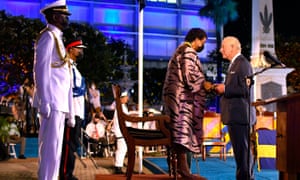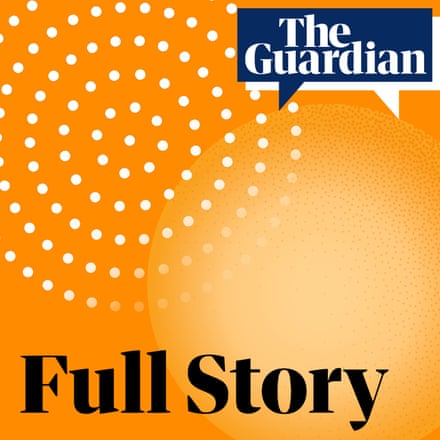Barbados becomes a republic – and Britain faces a reckoning
Barbados has replaced Queen Elizabeth II with president Sandra Mason, and while some are celebrating the change, others ask if a symbolic shift is enough to reckon with the legacy of colonialism. Michael Safi visits Bridgetown to ask whether the country can free itself from its history and what Britain owes to its former colonies and the people whose ancestors were enslaved
The first British monarch to claim Barbados was James I. On 30 November, Elizabeth II became the last. At that moment, the country made a symbolic break it hopes will help it take another step on a journey that began with emancipation but is still far from over.
Some see the establishment of a republic, with a president replacing the Queen, as profoundly important, but many are sceptical, pointing to the day-to-day deprivations that are still part of life on the island as a far more significant legacy of colonialism.
Michael Safi visits Bridgetown, and speaks to Esther Phillips, Barbados’ poet laureate, who takes him to the Drax plantation that was one of the country’s most heinous examples of the brutality of slavery and is still a going concern today. He also hears from David Comissiong, an activist and diplomat who has campaigned for a republic all his life, about the concrete consequences of colonialism that remain an impediment to Barbadian progress. And he meets Alexander Downes, the author of a petition that led to the removal of a statue of Lord Nelson in Bridgetown, who argues that while many may be apathetic about dumping the British monarchy, the moment’s true significance will be felt for decades to come
Read more:
- Nelson, BLM and new voices: why Barbados is ditching the Queen
- The Guardian view on Barbados and the Queen: it has moved on. Can Britain?
- Mia Mottley: Barbados’ first female leader on a mission to transform island

The Guardian is editorially independent. And we want to keep our journalism open and accessible to all. But we increasingly need our readers to fund our work.
Support The Guardian